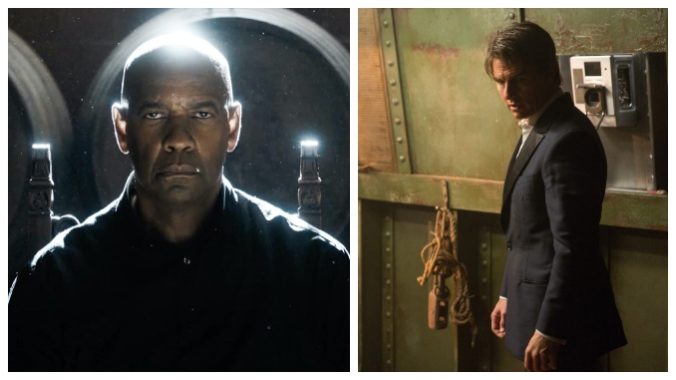The Spy Epic That Wasn’t: The Brief Life and Quick Death of The Matarese Circle

Tom Cruise and Denzel Washington co-starring in a spy thriller directed by David Cronenberg. If it sounds too good to be true, it’s because it is. But it nearly happened! Way back in 2008—right as Cruise was attempting to recover his career and Washington was riding high following American Gangster—MGM acquired the rights to The Matarese Circle, by Robert Ludlum. Purchased for $3 million, it was to be “the marquee film under the new regime of MGM topper Mary Parent.” As part of the deal, they also got the rights to its sequel, The Matarese Countdown. Remember, this was right on the heels of The Bourne Ultimatum, which made $444 million dollars at the 2007 box office. Many were eager to manufacture the next Bourne series. As Jeffrey Weiner, partner at Captivate Entertainment and the Executor of the Ludlum Estate, said at the time: “…we’re going to be careful not to copy Bourne. The Matarese Circle is a different story. We don’t need to imitate Bourne to build a new franchise.”
The Bourne films have precious little in common with the novels (also written by Ludlum) on which they are based. The original idea—a trained assassin with amnesia and a budding conscience—was the seed from which a blockbuster trilogy bloomed. The plot of The Matarese Circle is a bit more convoluted.
Set during the Cold War, it concerns two spies who are mortal enemies: One American (Brandon Scofield, CIA) and one Russian (Vasili Taleniekov, KGB). As fate would have it, they are forced to team up in order to take down a bigger threat: A clandestine group known as the Matarese, whose goal is one of global domination and destruction. The book was published in 1979 and it is silly yet potent. As with the best of Ludlum’s work, it’s both fast-paced and overwrought. There’s an alluring villain to fit the provocative premise. There’s also more than one pages-long monologue by a supporting character to fill in decades worth of exposition. The sequel, published two decades later, is a less compelling affair.
-

-

-

-

-

-

-

-

-

-

-

-

-

-

-

-

-

-

-

-

-

-

-

-

-

-

-

-

-

-

-

-

-

-

-

-

-

-

-

-








































